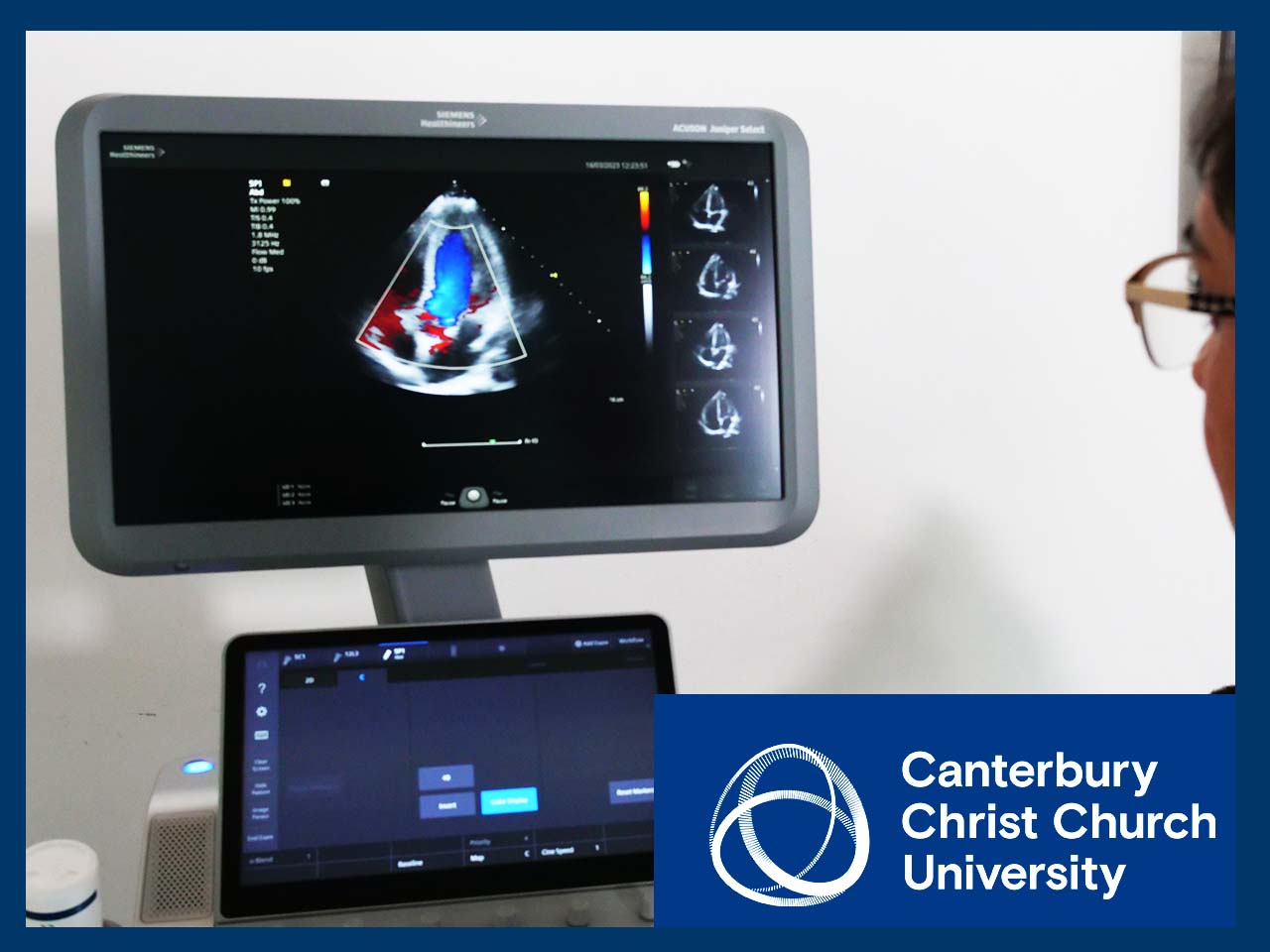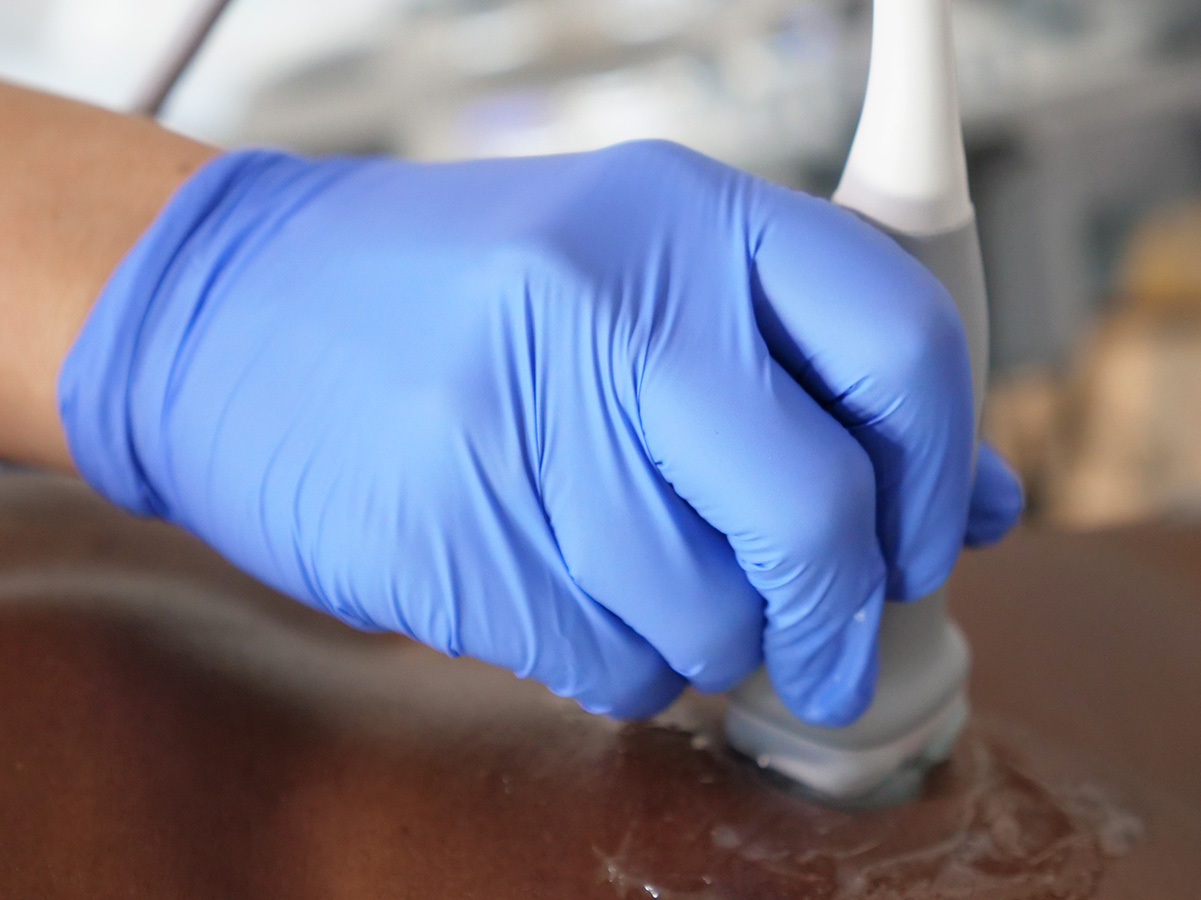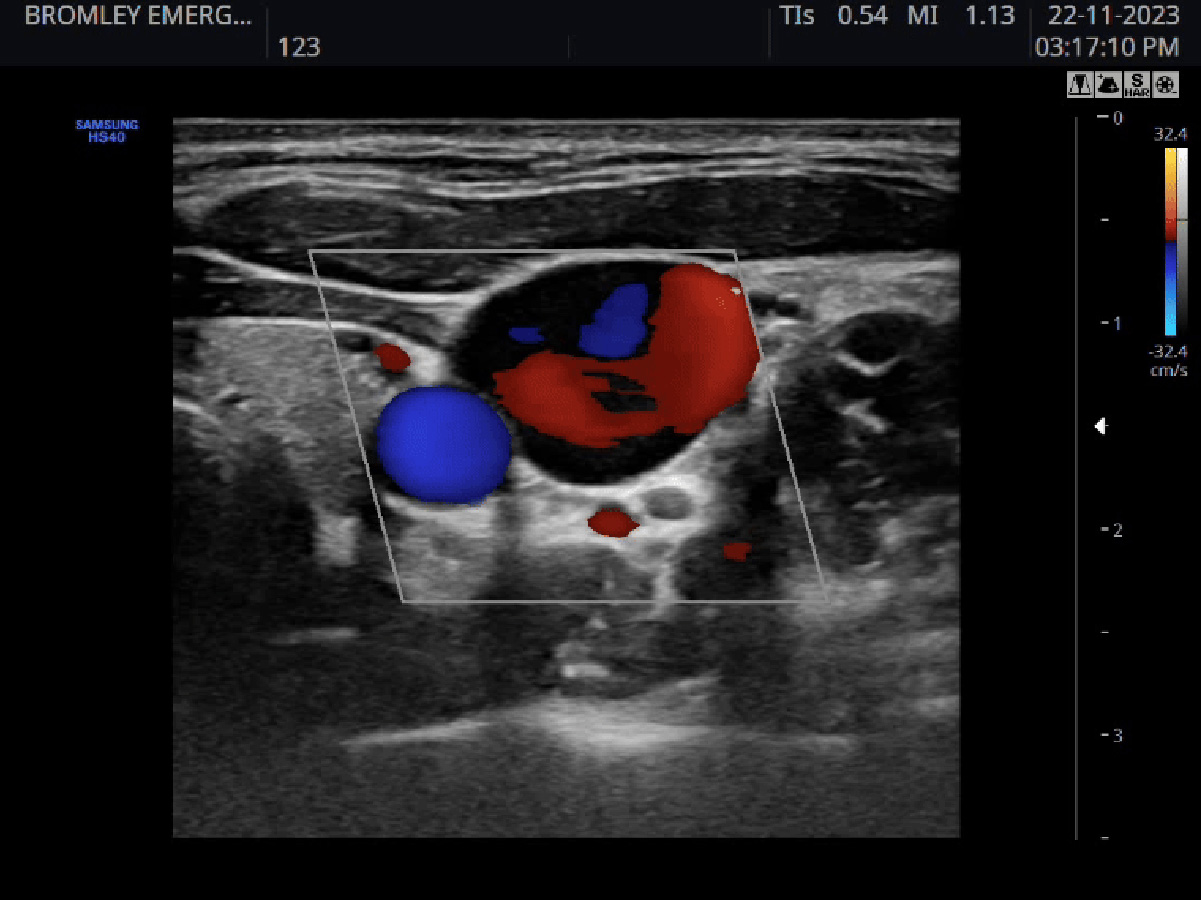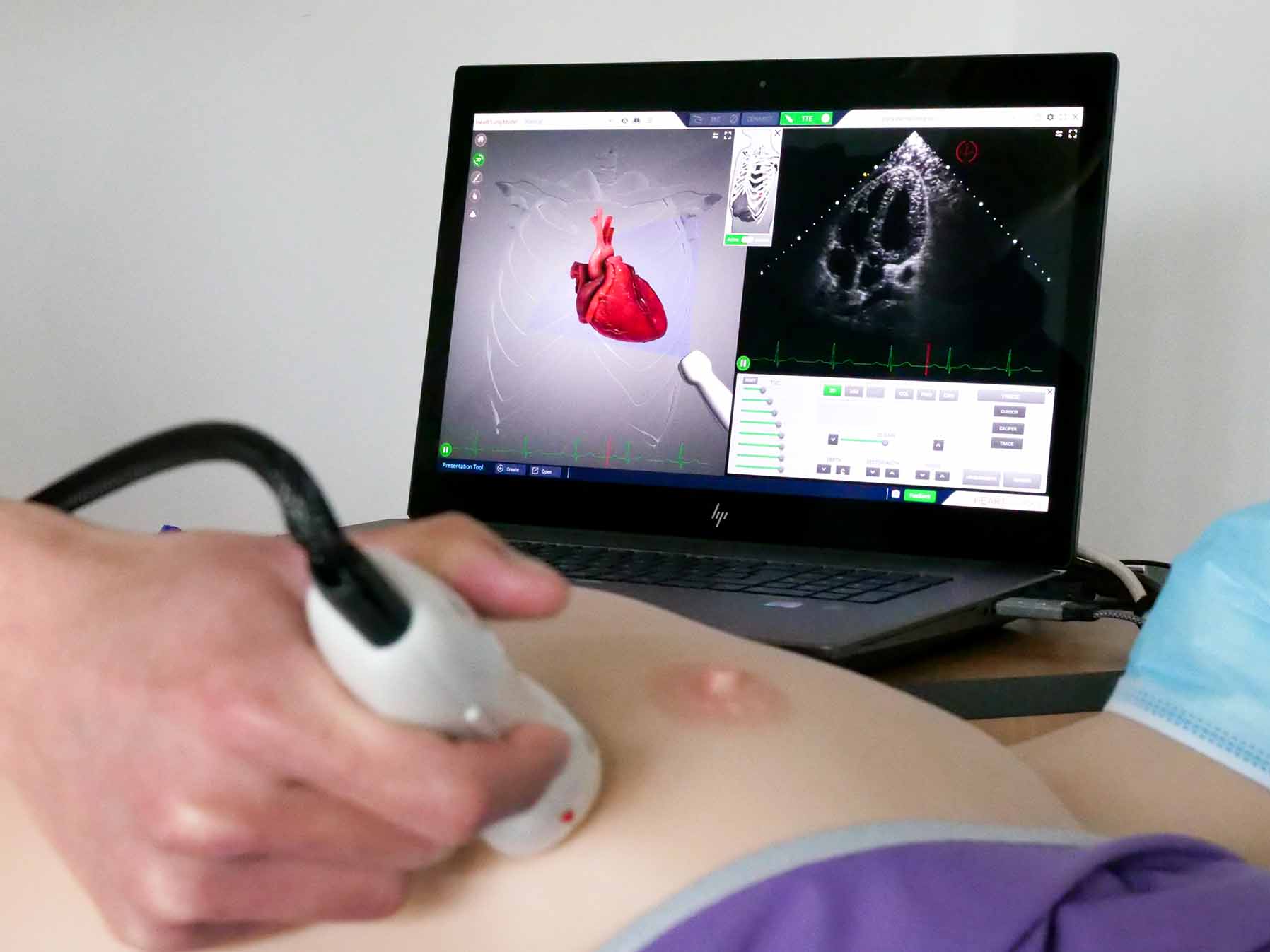Haemodynamic Assessment Micro-Credential (PgCert Module)
This university-affiliated course is designed for clinicians working in acute and critical care who want to enhance their use of ultrasound for haemodynamic assessment. Through a mix of online content and in-person training, you’ll gain skills in Doppler and B-mode imaging to assess systemic circulation, volume status, and cardiac output. Learn how to integrate PoCUS findings into real-time decisions around fluid resuscitation, shock differentiation, and vasopressor use to improve outcomes in unstable or critically ill patients.
This module goes beyond the content of our Extended Cardiac PoCUS module in the following areas: hepatic vein Doppler, portal vein pulsatility, Doppler assessment of limb perfusion. The module also explores how various haemodynamic and volume status measurements can be integrated into clinical decision making and the limits of current knowledge in these areas.
Please note: To apply for the Haemodynamic Assessment module, you must have completed either the Fundamental Cardiac PoCUS or Extended Cardiac PoCUS module (or equivalent cardiac ultrasound training) and the Vascular Ultrasound module.
This micro-credential can be taken as a standalone course or as part of our PgCert in PoCUS programme. Click here to learn more about the other micro-credentials we offer.
Next dates: 22nd January – 26th March 2026
Fee: £600

21 years of teaching EM and PoCUS courses
19 000 clinicians have taken our courses
4.9 out of 5 is our average Google review score
What is a micro-credential?
A micro-credential is a short, specific course of study, with an assessment which earns credits. The Credit Accumulation and Transfer Scheme is a national UK university scheme to allow credits to be earned and accumulated. For example, a typical postgraduate diploma is 120 credits, a typical PgCert is 60 credits. Each of our micro-credentials earns 10 credits, with each credit representing the notional equivalent of 10 hours of study.
What is the commitment?
Each micro-credential requires 100 hours of notional study, most of which will be self-directed learning. However, for micro-credentials with a practical component, you must also complete a minimum of 21 hours of in-person, hands-on training at our London-based training centre if this is your first micro-credential with us, or 15 hours if you have already attended one of our other micro-credentials. You can enrol on up to two micro-credentials per term.
What are the entry requirements?
- Professional Registration: Registered with the General Medical Council (GMC), Health & Care Professions Council (HCPC), or Nursing & Midwifery Council (NMC).
- Educational Background: A relevant first degree, such as MB BS (or equivalent), or a bachelor’s degree, ideally at first-class or 2:1 level.
- Clinical Experience: Current employment in an appropriate role within the NHS or a UK-based private healthcare provider, with evidence of basic ultrasound experience.



What does the Haemodynamic Assessment course cover?
- Medico-legal aspects – outlining the responsibility to practise within specific levels of competence and the requirements for training
- The value and role of departmental protocols in haemodynamic assessment
- Indications for haemodynamic ultrasound examinations in acute and critical care settings
- Patient information and preparation for haemodynamic PoCUS
- Relevance of haemodynamic ultrasound to other imaging modalities and physiological monitoring techniques
- Informed consent in the context of urgent or emergency ultrasound use
- Understanding of image acquisition and optimisation in relation to Doppler and B-mode techniques for haemodynamic ultrasound, and recognition of adequate views
- Scanning techniques, including Doppler evaluation and allowance for artefacts
- Understanding of normal and abnormal appearances relevant to haemodynamic PoCUS, including systemic circulation, venous congestion, and cardiac output indicators
- Interpretation of haemodynamic ultrasound views in the context of PoCUS clinical problems: fluid responsiveness, shock differentiation, tamponade physiology, venous congestion in heart failure or acute kidney injury, and circulatory failure
- The influence of haemodynamic ultrasound results on immediate management decisions, including fluid resuscitation, vasopressor use, and further imaging or intervention
How is the course taught?
You will have access to video materials covering the theoretical content. Didactic teaching will be combined with practical face-to-face sessions, where you will use a range of ultrasound systems to develop scanning skills on normal volunteers. Additionally, simulators will be used to practise imaging and identifying various abnormalities.
You must complete the required number of in-person practical training hours for this module—21 hours if it’s your first, or 15 hours if you’ve previously completed another module—before your assessment day.
How will your skills be assessed?
The award of the micro-credential will require successful completion of both written and practical assessments. The knowledge content will be assessed through a multiple-choice examination using still images where appropriate. Practical skills will be assessed through obtaining optimal images on normal subjects and through obtaining optimal images of simulated pathology on simulators.
Schedule
The in-person training sessions will run from 9:30 am to 4:30 pm. Attendance on the first and last days (assessment day) is mandatory. Attendance on the second day is highly recommended to ensure you gain the foundational knowledge essential for further training. The remaining days are flexible. However, you must complete at least 21 hours of in-person training at our London-based centre for your first module, and 15 hours for each subsequent module, before the assessment day.
Spring Term 2026 Schedule:
22nd–23rd January 2026 – core training days (22nd January is mandatory if this is your first module or micro-credential)
5th–6th February 2026 – training days
26th–27th February 2026 – training days
12th–13th March 2026 – training days
26th March 2026 – assessment day (mandatory to attend)
An additional training day may be added if needed.
What doctors say about our PgCert and micro-credentials programme
Subscribe to our weekly newsletter for updates on Emergency Medicine and Ultrasound courses
*By proceeding you give your consent to be contacted via email with updates on courses and events by Bromley Emergency Courses. You may unsubscribe from these communications at any time. We will never share your details with 3rd parties and will only use your email to send you information about our upcoming courses and other offers.

